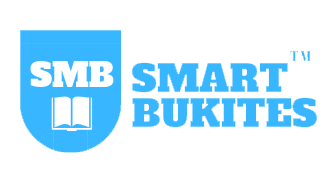If you’re a Nigerian student you’ll understand this better. A lecturer who barely comes to class will expect you to cover the course outline and give him impressive answers to exams if you must earn good grades. Some will make statements like A is for God, B is for me, and C is for serious students. Others make life unbearable for students during project supervision. This kills the morale of many students as they find it difficult to survive the threat.
Memory is a fundamental aspect of our daily lives, influencing everything from learning new skills to recalling important information. However, many individuals encounter challenges when it comes to remembering details, names, or sequences. Some could completely blackout during exams. Trust me, it’s never a pleasant experience. In this article, we will explore a variety of powerful memory techniques that can significantly enhance your ability to recall information with ease and of course A’s your exams.
1. Visualize your work
Create a vivid and mental picture of anything related to the material you’re studying. It helps in retention. Visualization is a powerful tool for memory enhancement, as it taps into the brain’s ability to recall vivid images. For instance, visualize a list of points by picturing each point item in a specific location within your house.
2. Associate every information
You can remember much more if you learn how to associate new information with familiar concepts or ideas. It’s all about connecting information with something you already know. This technique leverages existing mental frameworks, making it easier to remember new details. You can start by associating new terms or jargons with words in your native language.
3. Chunk large information
Breaking down large information into smaller, manageable chunks improves memory retention. Imagine trying to remember a long sequence of numbers versus breaking them into smaller groups. For instance, remembering 3141592653 is much easier when chunked as 3.1415 9265 3. To implement chunking, identify patterns or groupings within the information you’re trying to remember and focus on those smaller segments.
4. Use mnemonic devices
Gurus use mnemonic devices such as acronyms or rhythm to remember information more easily but you said it’s primary school stuff. Creating memorable association helps in recalling facts during exams. For instance, to remember a list of items – like “HOMES” for the Great Lakes (Huron, Ontario, Michigan, Erie, Superior) – or using acrostics, such as creating a sentence where the first letter of each word corresponds to the information you need.
5. Repeat frequently
Repeatedly reviewing and revisiting course material has a way of strengthening your memory. This involves scheduling review sessions at increasing intervals over time. You can do this by creating a schedule for revisiting information periodically.
6. Learn actively
Teaching what you learn to others, discussing concepts, or solving problems are best practices of active learning. Sometimes you don’t have to teach anyone; simply teach the concept as if you were explaining it to someone else. You’ll likely identify gaps in your understanding, then revisit the material.
7. Create mind maps
Mind maps are visual diagrams that illustrate the relationships between different pieces of information. Creating visual representations of material through mind maps helps in organizing and connecting ideas. You can use mind maps to see the overall structure of a topic and its key component.
8. Test yourself
To have great success in exams and A’s your courses you must learn the hack of regular self-assessment. You can do that at the end of every study to assess your understanding of the material studied. Practice past questions (PQ) before every exam. This does not just familiarize you with the exam structure but gives you leverage provided the questions are repeated. When you frequently test your knowledge, you quickly identify weak areas and focus on areas that need improvement.
9. Maintain a healthy lifestyle
While TDB (till daybreak) is good to help you cover so much, it’s important you take your health into consideration so you don’t suffer health challenges such as malaria, memory loss, etc., during exams. Maintaining a healthy lifestyle, including proper sleep, regular exercise, and a balanced diet, contributes to optimal cognitive function.
Memory hacks offer a diverse set of tools to enhance your ability to remember information both in exams and daily activities. While each technique has its strengths, the real power lies in combining them based on your personal preferences and learning style. Finally, pray always. You might just save yourself a lot of stress by doing that.
